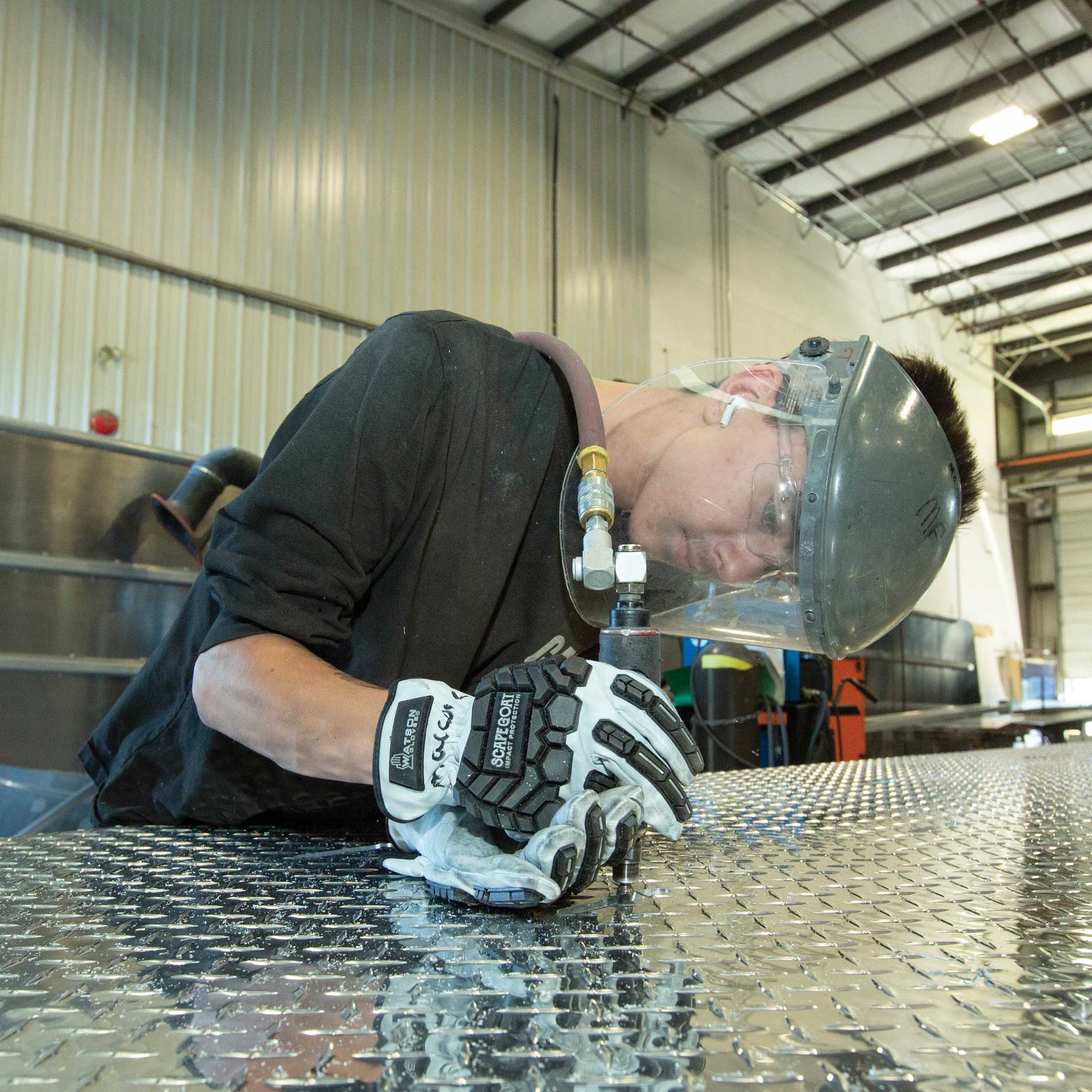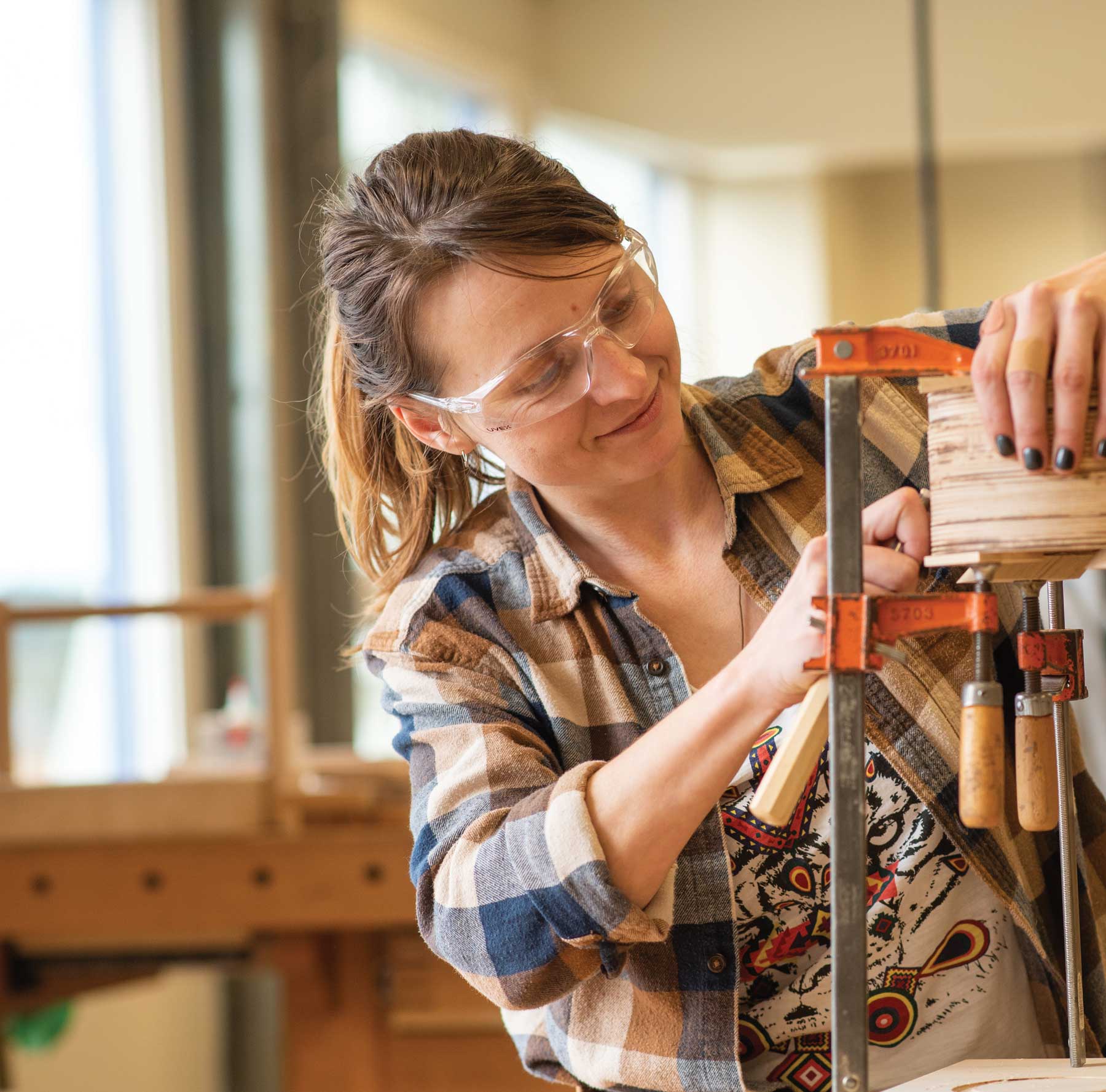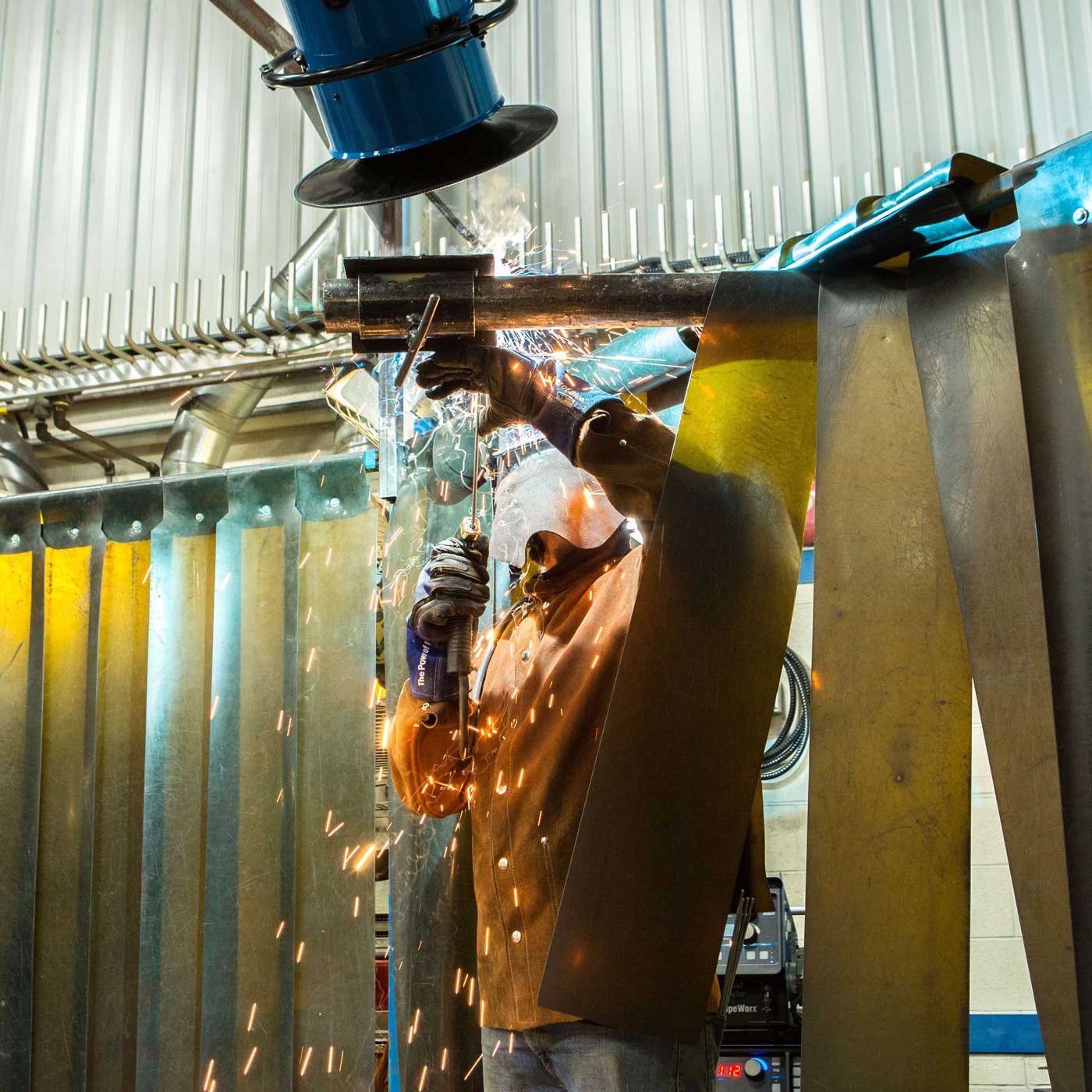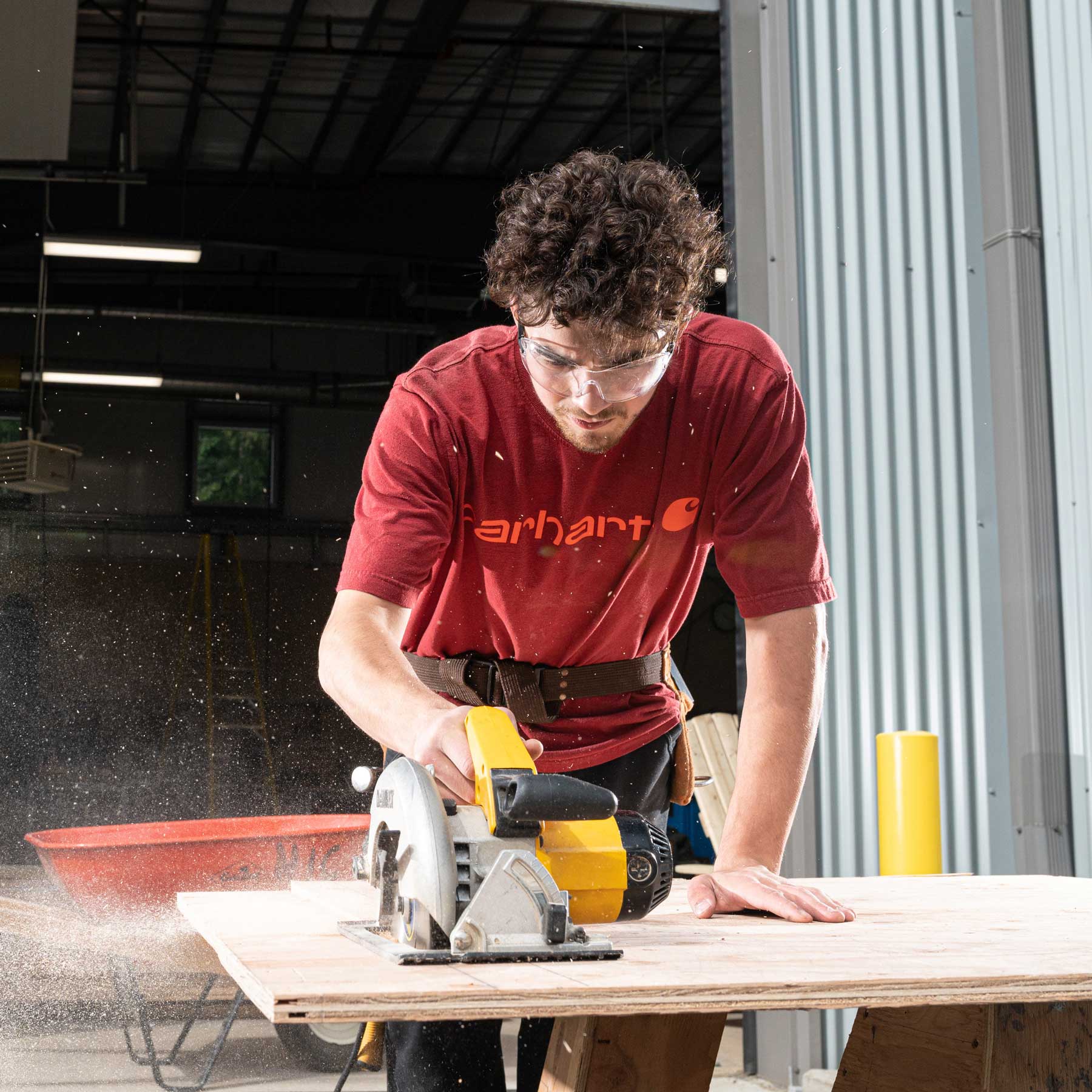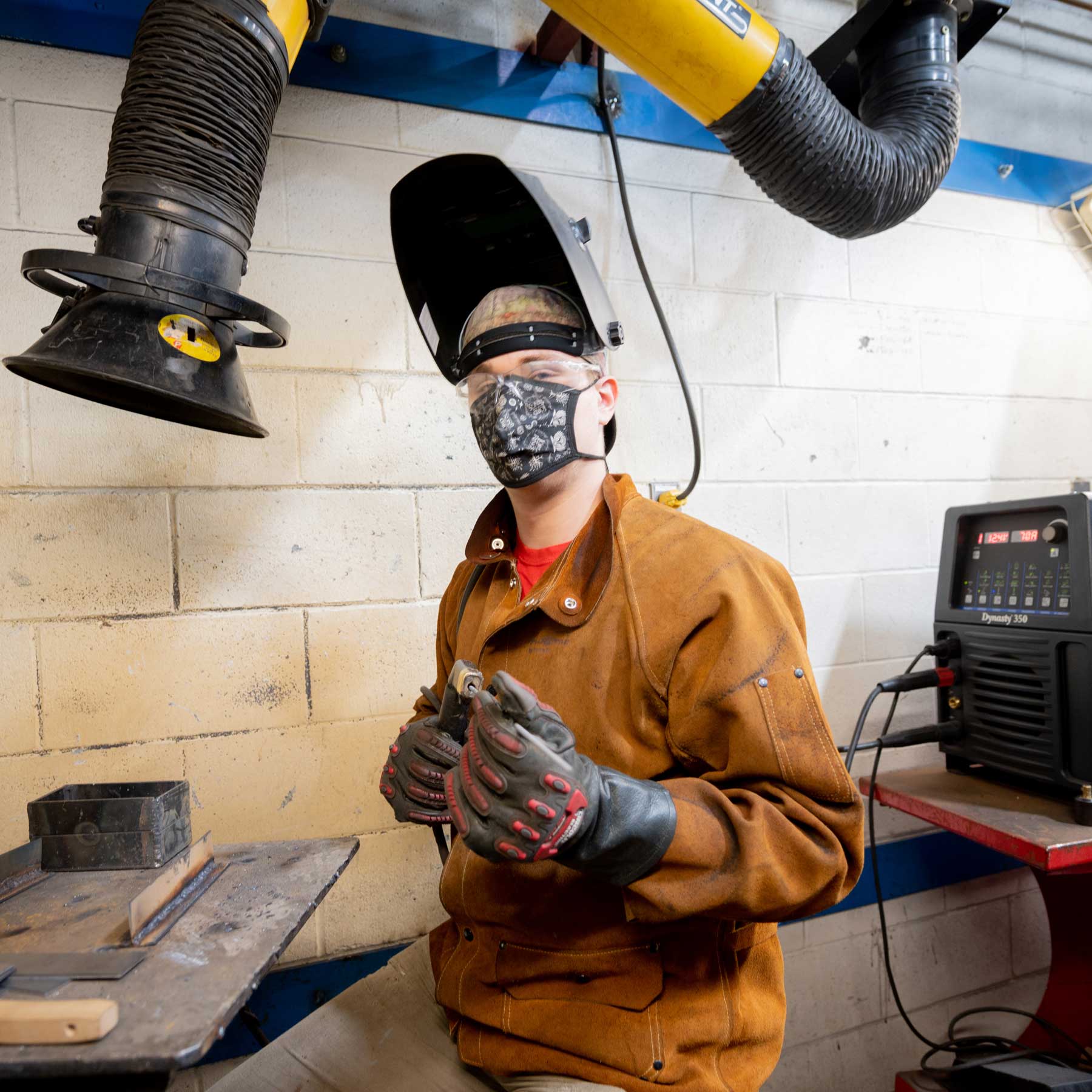Welder Foundation Harmonized Certificate
| Certificate | |
| Priority admission for Indigenous students | |
| Domestic applicants only |
Stay connected
Get program updates and event news straight to your inbox.
Applications open. |
Overview
The 28-week Welder Foundation Harmonized Certificate program is your first step towards entry-level roles in industrial manufacturing, welding and fabrication. You'll gain hands-on experience and develop essential skills in welding.
You'll learn:
- Various welding techniques
- Layout and fabrication skills
- Basic metallurgy and drawing for welding
- Occupational safety
You'll receive:
- Level 1 and Level 2 apprenticeship technical training
- 300 work-based hours and technical training credit upon registering as an apprentice
- Access to welding tests through NIC’s authorized Boiler Branch testing stations
- Opportunities for careers in industries like forestry, aquaculture, oil and gas, manufacturing and construction
Foundation vs. apprenticeship
There are two pathways to your red seal certification.
Foundation
A certificate program that gives you the basic knowledge and skills to enter a trade. You don't need an employer/sponsor.
Apprenticeship
This pathway combines on-the-job training with classroom learning. Pick this option if you're working and sponsored by a company registered with SkilledTradesBC.
Requirements and courses
Supplies
Students are required to provide the following list of basic supplies and tools:
- CSA-approved full safety face shield with head gear, clear (see instructor)
- CSA-approved safety glasses
- Tip cleaners (long sets)
- Striker (3-flint style)
- Cotton work clothes
- Steel-toed boots - above the ankle, green CSA-approved tag
- Leather jacket and apron (see instructor before purchasing)
- Welding gloves (finger style)
- Welding hat
- Welding helmet (see instructor before purchasing)
- Adjustable wrench (Crescent 10”)
- Vice grips (regular style, 10”),
- C clamp 4 - 6”
- Slip joint pliers (10”)
- Diagonal cutters (9”)
- Wire feed pliers (optional - replaces slip joint pliers and diagonal cutters)
- Wire brush
- Chipping hammer
- Tape measure 16’ x 1” (imperial/metric graduations or separate imperial and metric tapes)
In addition, NIC offers shop tools to students for a $100 refundable deposit, separate from tuition. You'll get the deposit back at the end of the term if all tools and tags are returned in good condition. Proof of payment from the Registration office is required to receive tools.
Costs
Check the table below for estimated costs for the full program.
Curious about funding?
Financial support is available. Learn more about financial aid and awards.
How to apply
Apply for this program through EducationPlannerBC. After you’ve applied, you’ll receive an email from NIC with your next steps. Be sure to add @nic.bc.ca to your safe sender list.
Questions? We’re with you along the way. To contact a recruiter, email futurestudents@nic.bc.ca.
Your path to Red Seal Certification
Frequently asked questions
Trades training prepares students for hands-on careers in skilled trades such as construction, mechanics, electrical work, plumbing, culinary and more. Programs combine classroom learning with practical, industry-specific skills.
NIC’s trades programs include:
- Automotive Collision and Refinishing Foundation
- Automotive Service Technician Foundation
- Carpentry Foundation
- Electrician Foundation
- Fabricator-Welder Foundation
- Furniture and Joinery
- Heavy Mechanical Trades Foundation
- Instrumentation and Electrical Automation
- Motor Sport and Power Equipment (motorcycle) Foundation
- Plumbing and Piping trades Foundation
- Parts and Warehousing Foundation
- Trades Sampler
- Welder Foundation
Typically, NIC offers:
- Pre-apprenticeship (Foundation) programs: Level 1 Foundation training to prepare for entry-level positions.
- Apprenticeship programs: A combination of on-the-job training and classroom instruction, Level 1-4.
- Specialized certifications: Training in specific skills or safety standards, such as welding or forklift operation.
The duration depends on the type of program, but generally are:
- Pre-apprenticeship programs: Level 1 training is about 24-36 weeks.
- Apprenticeship levels: Typically 5 to 17 weeks in-class training per level, with multiple levels required for certification. There are usually 4 levels required to complete before writing the Red Seal certification exams.
- Certifications: Often a few weeks to a few months.
- To find an employer willing to sponsor you as an apprentice.
- To register with your province’s apprenticeship authority.
- To attend required technical training at a college.
NIC can help with these steps, reach out to the Trades department at trades-technicalprograms@nic.bc.ca
Yes, trades students may qualify for:
- Government grants or tax credits.
- Apprenticeship incentives for both students and employers.
- Scholarships or bursaries specific to trades programs.
NIC can give you information around funding and scholarships, reach out to the Trades department at trades-technicalprograms@nic.bc.ca
Absolutely! Colleges and industries actively encourage diversity in trades and often offer supports, mentorship programs, and funding for women and underrepresented groups.
NIC has funding available, reach out to the Trades department at trades-technicalprograms@nic.bc.ca
